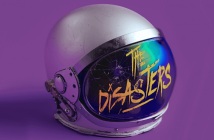When I started working as a literary agent last year, a few book industry friends playfully jabbed at me about NaNoWriMo. “Just wait until NaNoWriMo hits, and wait for the submissions.”
I didn’t really believe them.
“There’s no way I’ll get a ton of submissions right after NaNoWriMo.” I thought to myself. “There is so much to do before a book is ready to on sub. You don’t just send it off as soon as you’re—“
“Oh!” I gasped, moments after NaNoWriMo ended. “Oh my.”
I began to weep, tears falling on my keyboard.
“My inbox!” I wailed, looking up the sky. “What is happening?!”
Alright, that was all very silly. My inbox was never flooded post-NaNoWriMo. Writers are too smart for that. But I do have a point here. When you’ve finished your NaNoWriMo novel, you might have the urge to start querying about it immediately. It’s done. You crossed the finish line and it’s time to tell people about it.
But here’s the thing: it isn’t done. But it is time to start telling people about it. But not the people you might be thinking.
Lots of buts here, apologies. However, before you start querying, here are a few things I’d like you to do, to win what happens after NaNoWriMo. Getting an agent, and potentially getting your book out there.
Reading With Your Peers: These are the people I’d like you to talk to about your book. Your friends, your colleagues. If you have readers in your circle of friends (of course you do!), see if they have time to read your manuscript. Ask for feedback. Your eyes reading and re-reading the book aren’t enough.
It’s also important to find critique partners that might be outside your circle of friends. Nothing is worse than getting a bunch of feedback that’s like “wow I like this!” with smiley faces and stars next to it. It might feel nice, but that’s shallow feedback. You want people that will critique you and encourage you, not just one of those things.
But where?! Where are these people?!
You can look for your potential critique buddies on social media, the local chapter of your SCWBI, or the fantastic Reddit community that Beth Revis has created for YA writers. Every now and again there are call outs for critique partners.
But remember, give as much as you get. Be sure to give feedback in return.
It isn’t enough to just edit on your own, friends. Writing isn’t a solidary process, despite how it might feel when you’re working on those initial pages. Turn to the community, find your people, and help them mold your prose.
Researching Agents: So you’ve done your work in getting reads and getting edits, and you think you might be ready to start querying your book around. Awesome!
Take. Your. Time.
Remember, that a partnership with an agent is just that. A partnership. Chances are, you’ll become friends, or at least colleagues who talk frequently.
It’s important not to think of yourself as a writer desperate for an agent to pick you. If you’ve written a good book, agents are going to want you to choose them. Agents need writers. We look for you, hungrily. You are wanted.
So take your time, and choose your agents that you want to pitch wisely. What books have they worked on? Do they work in your genre? Look up their recent sales. Look up what they’ve read lately. Make sure this is someone you can see yourself working with, and that this is someone who would be into your book.
Don’t:
- BCC a bunch of agents in an email. Make it personal. You want to establish a connection.
- Poke agents on social media, if they aren’t open to that. Send a traditional query.
Do:
- Look at the back of your favorite book, and look for the agent in the acknowledgements.
- Visit websites like Manuscript Wishlist, and see what agents are actively looking for
- Check out social media pitch contests like #DVPit #PitchMadness and the like.
Master Your Query: Remember, agents get a lot of emails. It’s crazy. We love it, as we’re looking for writers, but you want to make sure your query nails the attention of who you are pitching.
An agent pal of mine, Gordon Warnock, said at a conference once that a good query letter is “the hook, the book, and the cook.” He was quoting another agent, so apologies in advance to whoever that was, I don’t know.
What’s that mean?
Try to find a way to summarize your book quickly when you’re getting ready to query it around. If someone asks you what your book is about, and you end up explaining the story for 15 minutes… you’re not ready yet.
- The Hook: Your one to two sentence hook about the story. “It’s Jurassic Park meets Mean Girls!”
- The Book: Your story, dished out in one to two paragraphs.
- The Cook: You! Who are you? Why does the agent want to work with you? Dish!
And there you have it. Three things to work on post-pitching. Re-reading and editing. Researching agents carefully. And crafting your query to perfection.
Good luck out there!





1 Comment
Eric Smith rocks. Thanks for the advice Mr. Super agent, these are my life goals!